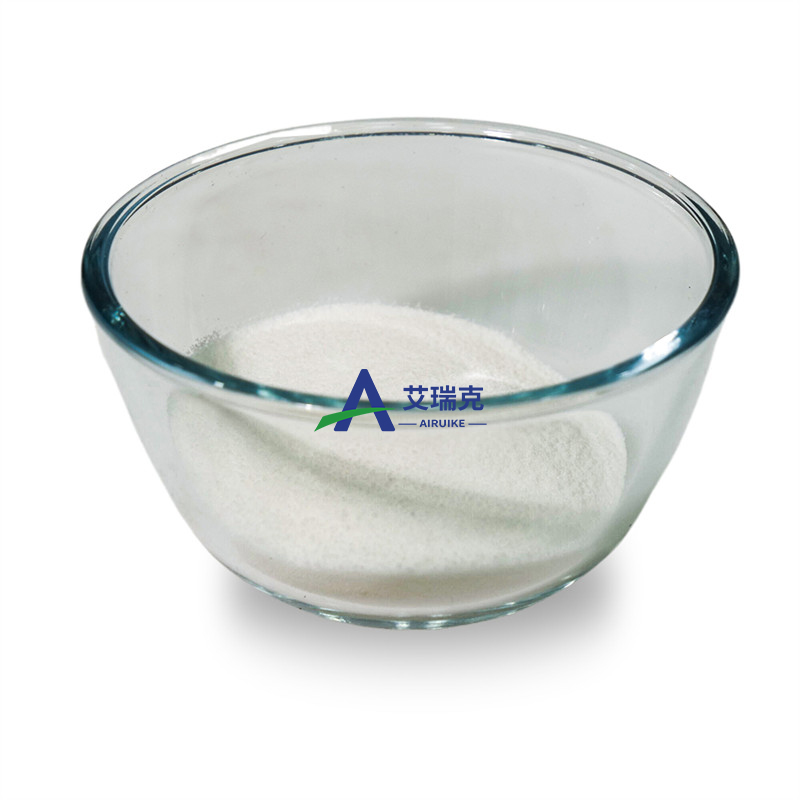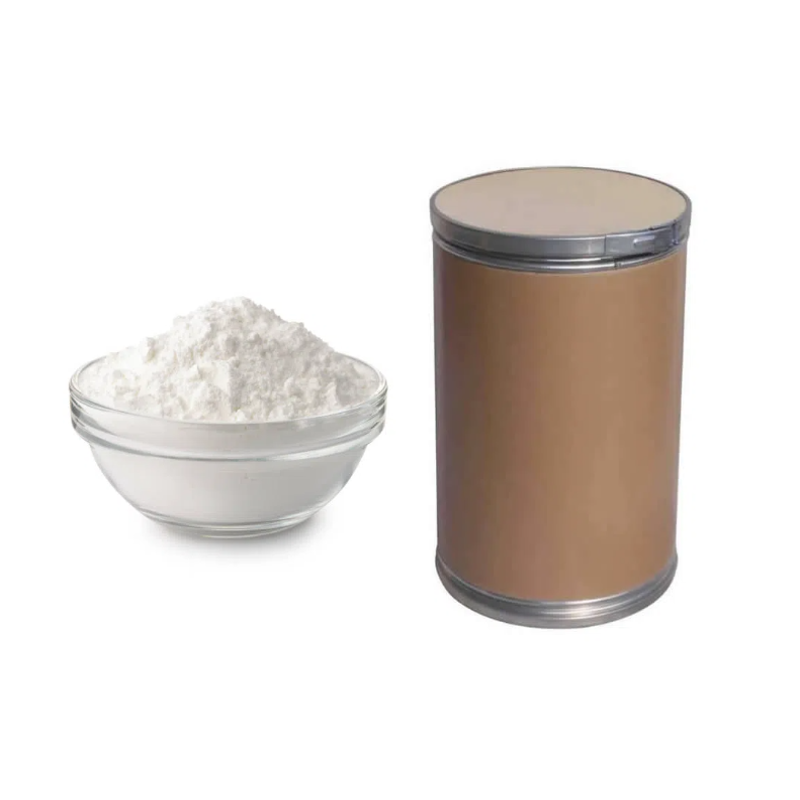-
Categories
-
Pharmaceutical Intermediates
-
Active Pharmaceutical Ingredients
-
Food Additives
- Industrial Coatings
- Agrochemicals
- Dyes and Pigments
- Surfactant
- Flavors and Fragrances
- Chemical Reagents
- Catalyst and Auxiliary
- Natural Products
- Inorganic Chemistry
-
Organic Chemistry
-
Biochemical Engineering
- Analytical Chemistry
-
Cosmetic Ingredient
- Water Treatment Chemical
-
Pharmaceutical Intermediates
Promotion
ECHEMI Mall
Wholesale
Weekly Price
Exhibition
News
-
Trade Service
Exploring the new world of secretion---MDT selection of "Exploring the new world of secretion" is sponsored by the Beijing Medical Award Foundation, guided by the Chinese Anti-Cancer Association Urology and Andrology Reproductive Tumor Committee, and fully supported by Yimaitong
.
It aims to promote the communication and interaction of doctors in the field of urinary oncology-MDT resource sharing, academic cutting-edge broadcasts, and improvement of clinical diagnosis and treatment
.
Click to watch the highlights of MDT highlights.
This issue of the MDT team from the First Affiliated Hospital of Nanchang University and the First Affiliated Hospital of Wenzhou Medical University will bring you wonderful discussions
.
Special report (1): The platoon of the first-line new hormone therapy for mCRPC As the terminal stage of prostate cancer, the prognosis of metastatic castration-resistant prostate cancer (mCRPC) is poor, and only less than half of the patients can receive second-line and The above treatment, therefore, Professor Huang Hang of the First Affiliated Hospital of Wenzhou Medical University said that the treatment of mCRPC should pay more attention to the first-line treatment plan
.
From clinical trials to real world studies (RWE), enzalutamide, as a new type of endocrine therapy, may be more superior than abiraterone or other treatments
.
Moreover, in some patients with poor prognostic factors, enzalutamide treatment has better benefits
.
Case sharing and discussion (1) Professor Yang Xiaorong from the First Affiliated Hospital of Nanchang University shared with us the clinical cases of mCRPC and metastatic hormone-sensitive prostate cancer (mHSPC).
Multidisciplinary experts discussed the selection of follow-up treatment options for the two patients Explore
.
Case 1 is a male patient, 83 years old
.
Main complaint: frequent urination, difficulty urinating
.
Auxiliary examination: MRI: abnormal signal in the prostate, consider malignant lesions.
Puncture biopsy: prostate adenocarcinoma, Gleason score 4+5=9 points Diagnosis: prostate cancer with bone metastasis
.
Treatment experience: 1.
In January 2019, traditional endocrine therapy: goserelin + bicalutamide
.
2.
In March 2021, the patient's PSA increased, mCRPC was diagnosed, and the treatment plan was changed: goserelin + enzalutamide
.
Case 2 The patient is male, 84 years old
.
Main complaint: frequent urination and urgency for more than 7 years
.
Auxiliary examination: ◆CT: Prostate calcification, unclear borders, multiple enlarged lymph nodes in the pelvic wall ◆Needle biopsy: prostate adenocarcinoma, Gleason score 5+5=10 Diagnosis: high tumor burden mHSPC with bone metastasis
.
Treatment experience: July 2021, endocrine therapy: goserelin+enzalutamide+desulumab
.
Case Sharing and Discussion (2) Professor Chen Wei from the First Affiliated Hospital of Wenzhou Medical University shared a newly diagnosed advanced prostate cancer case for us.
For similar newly diagnosed and advanced prostate cancer patients, experts from the two hospitals should select clinical treatments The plan puts forward its own point of view
.
The patient is 58 years old
.
Main complaint: Difficulty urinating for more than half a year
.
Auxiliary examination: ◆Digital rectal examination: III-degree enlarged prostate, hard texture ◆CT: Enlarged prostate, multiple cysts in the left kidney Diagnosis: Advanced prostate cancer with bone metastasis
.
Treatment experience: 1.
In September 2013, he underwent palliative transurethral resection of the prostate (TURP), after the endocrine therapy: goserelin + bicalutamide
.
2.
In July 2015, the patient's PSA increased, and the treatment was changed: goserelin + flutamide
.
3.
In March 2018, the patient's PSA rose again.
In April, he underwent radical prostatectomy + pelvic lymph node enlarged dissection, and underwent conventional androgen deprivation treatment (ADT) after the operation
.
4.
In April 2019, the patient's PSA gradually increased, and ADT + new endocrine therapy was given
.
5.
In February 2020, the patient's PSA increased again and was treated with dexamethasone
.
Judging from the above cases, what changes has the emergence of new endocrine drugs brought to clinical practice? Professor Zhang Zhanmin of the First Affiliated Hospital of Nanchang University said that the emergence of new endocrine therapy drugs has brought great changes to clinical practice
.
Before the emergence of new endocrine therapy drugs, clinicians usually used ADT combined with the previous generation of antiandrogens, or docetaxel combined with prednisone chemotherapy
.
But now, you can choose to use first-line new endocrine drugs directly
.
At the same time, from the perspective of the guidelines, Professor Zhang said that new endocrine therapy drugs can also be used in second-line treatment
.
In the special report, why is the choice of first-line treatment for mCRPC patients important? In the case discussion, what changes did the emergence of new endocrine drugs bring to the clinical treatment of prostate cancer? Click "Read the original text" below to watch the wonderful special report and MDT discussion
.
Click "Read the original text" below to watch the full wonderful special report and MDT discussion
.
It aims to promote the communication and interaction of doctors in the field of urinary oncology-MDT resource sharing, academic cutting-edge broadcasts, and improvement of clinical diagnosis and treatment
.
Click to watch the highlights of MDT highlights.
This issue of the MDT team from the First Affiliated Hospital of Nanchang University and the First Affiliated Hospital of Wenzhou Medical University will bring you wonderful discussions
.
Special report (1): The platoon of the first-line new hormone therapy for mCRPC As the terminal stage of prostate cancer, the prognosis of metastatic castration-resistant prostate cancer (mCRPC) is poor, and only less than half of the patients can receive second-line and The above treatment, therefore, Professor Huang Hang of the First Affiliated Hospital of Wenzhou Medical University said that the treatment of mCRPC should pay more attention to the first-line treatment plan
.
From clinical trials to real world studies (RWE), enzalutamide, as a new type of endocrine therapy, may be more superior than abiraterone or other treatments
.
Moreover, in some patients with poor prognostic factors, enzalutamide treatment has better benefits
.
Case sharing and discussion (1) Professor Yang Xiaorong from the First Affiliated Hospital of Nanchang University shared with us the clinical cases of mCRPC and metastatic hormone-sensitive prostate cancer (mHSPC).
Multidisciplinary experts discussed the selection of follow-up treatment options for the two patients Explore
.
Case 1 is a male patient, 83 years old
.
Main complaint: frequent urination, difficulty urinating
.
Auxiliary examination: MRI: abnormal signal in the prostate, consider malignant lesions.
Puncture biopsy: prostate adenocarcinoma, Gleason score 4+5=9 points Diagnosis: prostate cancer with bone metastasis
.
Treatment experience: 1.
In January 2019, traditional endocrine therapy: goserelin + bicalutamide
.
2.
In March 2021, the patient's PSA increased, mCRPC was diagnosed, and the treatment plan was changed: goserelin + enzalutamide
.
Case 2 The patient is male, 84 years old
.
Main complaint: frequent urination and urgency for more than 7 years
.
Auxiliary examination: ◆CT: Prostate calcification, unclear borders, multiple enlarged lymph nodes in the pelvic wall ◆Needle biopsy: prostate adenocarcinoma, Gleason score 5+5=10 Diagnosis: high tumor burden mHSPC with bone metastasis
.
Treatment experience: July 2021, endocrine therapy: goserelin+enzalutamide+desulumab
.
Case Sharing and Discussion (2) Professor Chen Wei from the First Affiliated Hospital of Wenzhou Medical University shared a newly diagnosed advanced prostate cancer case for us.
For similar newly diagnosed and advanced prostate cancer patients, experts from the two hospitals should select clinical treatments The plan puts forward its own point of view
.
The patient is 58 years old
.
Main complaint: Difficulty urinating for more than half a year
.
Auxiliary examination: ◆Digital rectal examination: III-degree enlarged prostate, hard texture ◆CT: Enlarged prostate, multiple cysts in the left kidney Diagnosis: Advanced prostate cancer with bone metastasis
.
Treatment experience: 1.
In September 2013, he underwent palliative transurethral resection of the prostate (TURP), after the endocrine therapy: goserelin + bicalutamide
.
2.
In July 2015, the patient's PSA increased, and the treatment was changed: goserelin + flutamide
.
3.
In March 2018, the patient's PSA rose again.
In April, he underwent radical prostatectomy + pelvic lymph node enlarged dissection, and underwent conventional androgen deprivation treatment (ADT) after the operation
.
4.
In April 2019, the patient's PSA gradually increased, and ADT + new endocrine therapy was given
.
5.
In February 2020, the patient's PSA increased again and was treated with dexamethasone
.
Judging from the above cases, what changes has the emergence of new endocrine drugs brought to clinical practice? Professor Zhang Zhanmin of the First Affiliated Hospital of Nanchang University said that the emergence of new endocrine therapy drugs has brought great changes to clinical practice
.
Before the emergence of new endocrine therapy drugs, clinicians usually used ADT combined with the previous generation of antiandrogens, or docetaxel combined with prednisone chemotherapy
.
But now, you can choose to use first-line new endocrine drugs directly
.
At the same time, from the perspective of the guidelines, Professor Zhang said that new endocrine therapy drugs can also be used in second-line treatment
.
In the special report, why is the choice of first-line treatment for mCRPC patients important? In the case discussion, what changes did the emergence of new endocrine drugs bring to the clinical treatment of prostate cancer? Click "Read the original text" below to watch the wonderful special report and MDT discussion
.
Click "Read the original text" below to watch the full wonderful special report and MDT discussion







